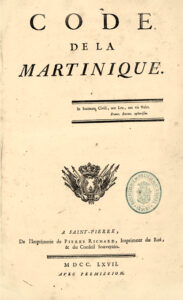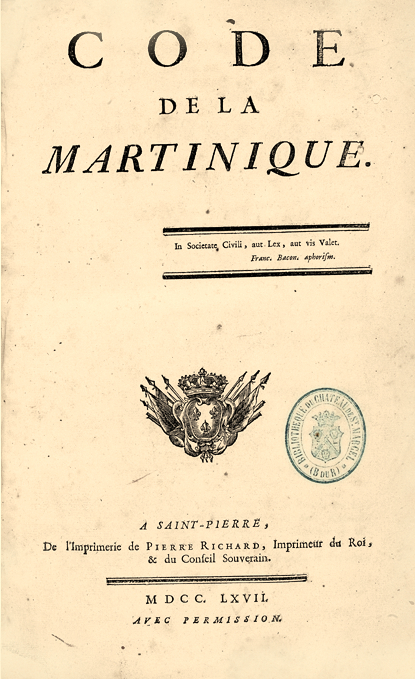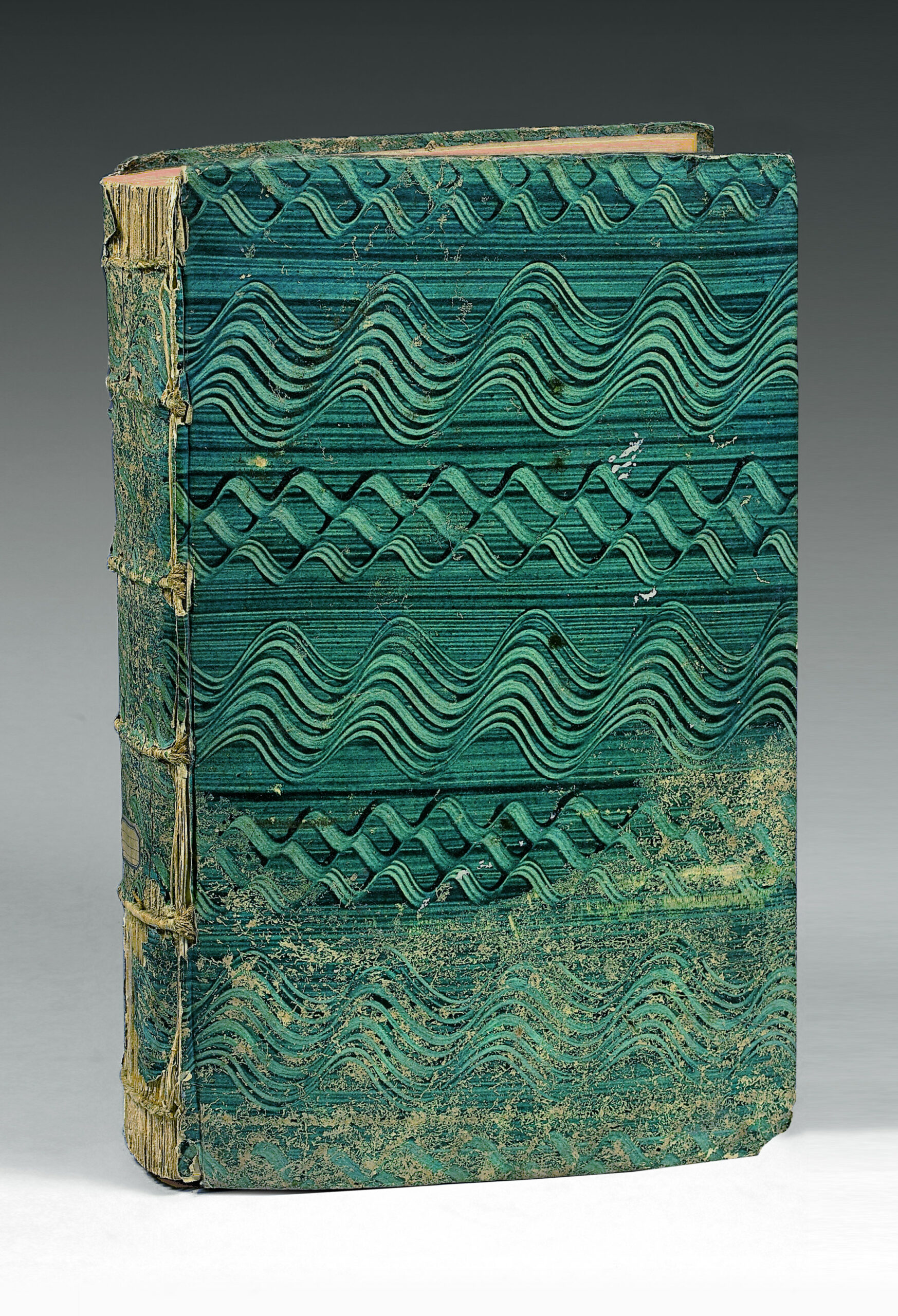Saint-Pierre, de l’Imprimerie de Pierre Richard, 1767.
Bound with : Supplément au code de la Martinique.
Saint-Pierre, Pierre Richard, 1772.
2 parts bound in 1 folio volume of (4) pp., XX, 552, viii, 152.
Preserved in its original cased binding in marbled blue paper, red edges. Usual defects to the binding.
313 x 197 mm.
Very rare first edition of this “incunabulum” from Martinique.
Sabin, 61263; Barbier, Dictionnaire des ouvrages anonymes, 623; L’Imprimerie hors l’Europe, p. 143; Dampierre, p. 198; Leclerc, Bibliotheca Americana, 1436.
An official compendium of the utmost importance for the history of Martinique and for the history of law. This Code was written by Jacques Petit de Viévigne, who was an honorary councilor on the Conseil supérieur de la Martinique in 1786, seneschal and judge of the admiralty of Saint-Pierre de la Martinique.
“This work was conceived and written according to a methodical plan, so as to serve the administrator and the judge. For historical purposes, the documents are listed in chronological order. However, it should be added that the only act prior to 1664 contained in the ‘Code’ is the Edict of 1642 extending the privileges granted to the Company of the Isles of America […]. It is the 1807-1814 reprint of this work that we usually come across, the original edition being very rare” (Dampierre).
It is divided into 8 parts: the first contains laws on general administration, the second on the Church, the third on the army, the fourth on finance, the fifth on trade, the sixth on the navy, the seventh on justice and the last on the police.
The supplement published in 1772 is also extremely rare and is rarely found bound with the rest of the code.
Martinique was occupied in 1635 on behalf of France by Charles Lyénard and Jean Duplessis; Saint-Pierre was created in 1658 and Fort-de-France in 1672. The British seized the island on 13 February 1762; the Treaty of Versailles (1767) returned it to France. A decree in 1789 declared men of colour to be equal to whites, and the Convention then proclaimed the freedom of blacks. The civil war that followed the emancipation ruined the crops and, despite Rochambeau’s resistance, the English seized the island again in 1794. A treaty in November 1815 definitively attached Martinique to France. It was in this changing context that the Code de la Martinique was published. The first volume was published the same year the Treaty of Versailles was ratified.
The Code of Martinique is the oldest known printing made in this island.
“Printing must date back to 1729 in Martinique, when the first printer’s license was granted to Mr Devaux, a bookseller; but no printing from this workshop is known. It was not until 1767 that we can cite a book which, until further discovery, is an incunabulum” (L’Imprimerie hors l’Europe).
“An important and extremely rare collection for the history of Martinique; it is one of the oldest printings made on this island, although the first printer’s license was granted to a Mr Devaux in 1729, no book is known to have come off the presses of this printer” (Leclerc).
It is interesting to read in the preface to a later edition of the Code, printed in Saint-Pierre in 1807-1814, that this original 1767 edition had already become unobtainable: “Whereas the collection known as the ‘Code de la Martinique’ has become so rare that it can no longer be obtained at any price; whereas, however, this collection, the only one of its kind in existence, has become indispensable for the management of both public and private affairs in this colony…” (Leclerc).
An interesting copy preserved in its original condition, in its blue marble paper boards, without any restoration. Printed in a small number of copies thousands of miles from France, in a climate not very conducive to the preservation of books, this volume has come down to us in its strict original condition.
Provenance: stamp of the Bibliothèque du Château de Saint-Marcel (B. du R.) on the title.



